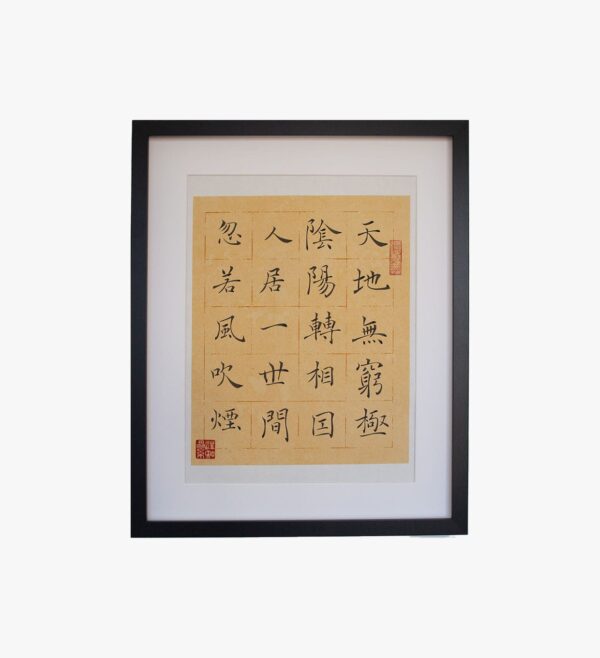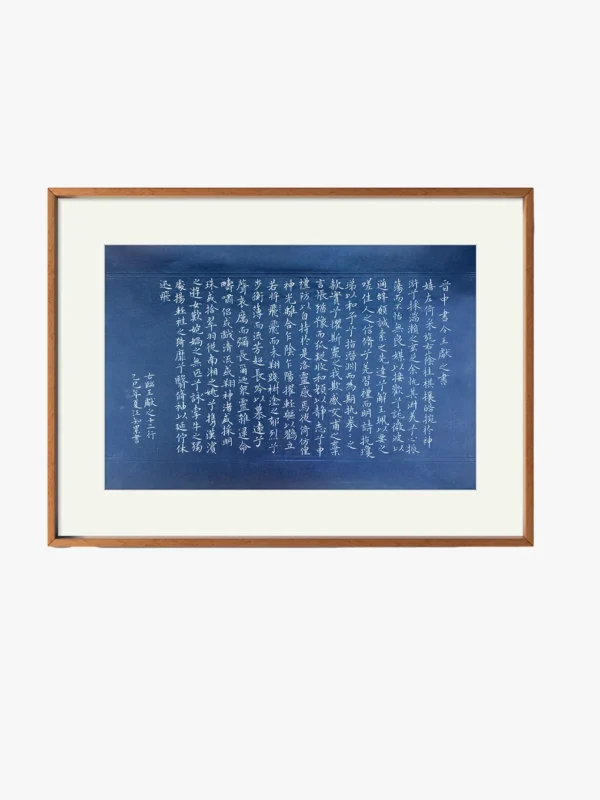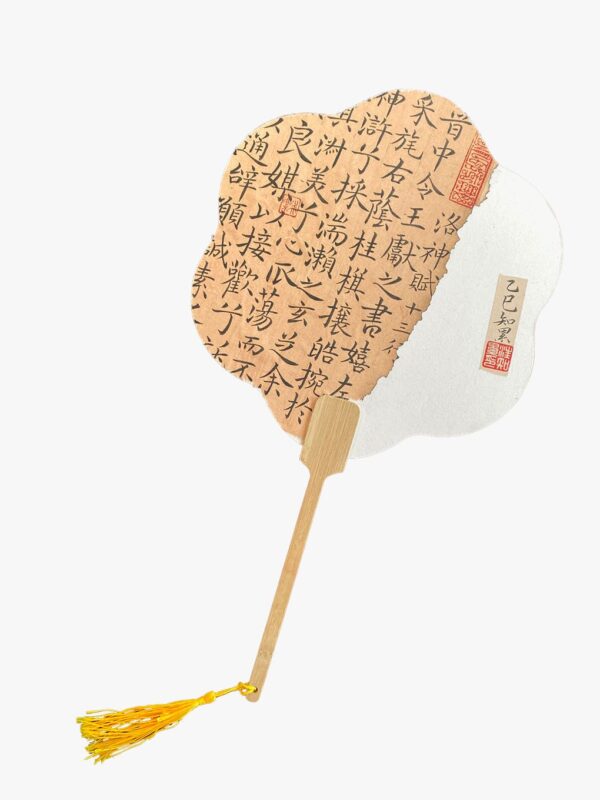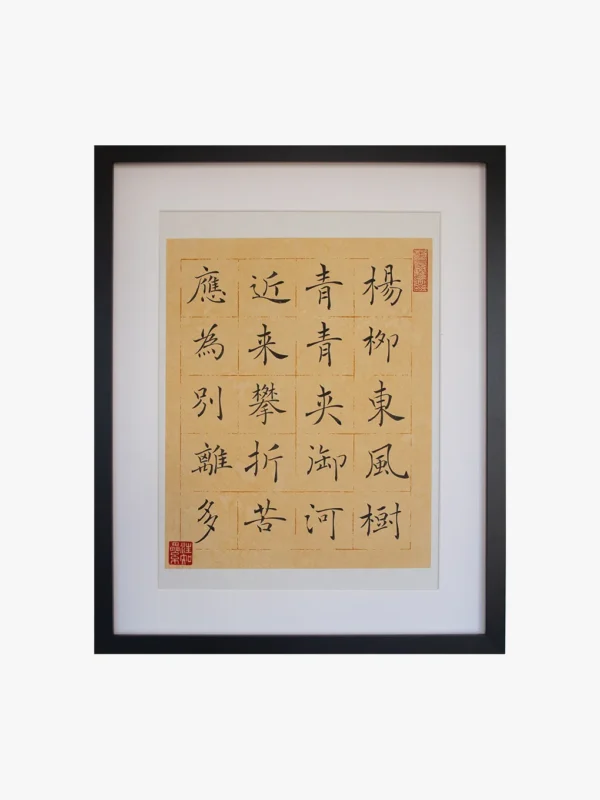Written with love, shared with joy.

Handwritten Chinese Calligraphy Wall Hanging with Cao Zhi Aspiration Poem
$220.00
This enchanting Chinese calligraphy wall hanging with aspiration poem by Cao Zhi reflects the timeless philosophy of life’s fleeting nature and expresses the poet’s unwavering belief in making meaningful contributions within the limits of his life.
A profound work of art that resonates with the soul and celebrates the poetic spirit.
- Materials: Handmade calligraphy on premium rice paper with an antique finish.
- Design: Soft yellow background with an antique tone complements the historical and cultural significance of the poem.
- Calligraphy: Features Cao Zhi’s poetic line, handwritten using traditional brush techniques.
- Seals: Stamped with the artist’s personal name seal and leisure seal for authenticity.
- Dimensions: 40 cm x 50 cm.
This wall-hanging artworks comes with the IKEA RÖDALM black frame by default. If you prefer a white frame, please specify your preference in the Order Notes section at checkout.
The Meaning and Origin of the Words
This stunning calligraphy wall hanging with aspiration poem by Cao Zhi features lines from his timeless works, “Ballad of White Dew” (薤露行). With a soft yellow background and antique-inspired design, the wall hanging with aspiration poem conveys the profound message of life’s transience and the endless cycles of nature:
“天地無窮極,陰陽轉相因。
人居一世間,忽若風吹塵。”
Translation:
“The heavens and earth have no bounds;
Yin and Yang shift, one giving rise to the other.
Human life in this world—
Brief as dust blown by the wind.”
Cao Zhi’s “Ballad of White Dew” is a meditation on the transient nature of life. The opening lines, “天地無窮極” (The heavens and earth have no bounds), remind us of the vastness of the universe and its ceaseless cycles. This cosmic perspective frames the ephemeral nature of human life, emphasizing how fleeting our existence is in comparison.
The second line, “陰陽轉相因” (Yin and Yang shift, one giving rise to the other), highlights the interconnected forces of change in nature. Yin and yang symbolize opposites—light and dark, life and death—that perpetually transform into one another. This serves as a reminder of the natural order of life’s beginnings and endings.
The closing lines bring the focus to the human experience: “人居一世間,忽若風吹塵” (Human life in this world—brief as dust blown by the wind). Here, life is likened to dust, a metaphor for fragility and impermanence. The imagery of wind sweeping away dust evokes a sense of suddenness and inevitability, reflecting the poet’s acceptance of life’s transience.
This poem expresses the poet’s unwavering belief in making meaningful contributions within the limits of his life. Even if he cannot achieve great accomplishments, he aspires to leave behind his own intellectual legacy. The poem is characterized by its robust and refreshing style, candid and sincere emotions, and captivating resonance.
About the Poet
Cao Zhi (192–232 CE) was a prince of the state of Cao Wei in the Three Kingdoms period of China, and an accomplished poet in his time. His style of poetry, greatly revered during the Jin dynasty and Southern and Northern Dynasties, came to be known as the Jian’an style. Cao Zhi was a son of Cao Cao, a warlord who rose to power towards the end of the Eastern Han dynasty and laid the foundation for the state of Cao Wei.
Famous for his literary brilliance, he was a master of expressing deep emotions and profound ideas with remarkable clarity. His works often explore themes of impermanence, nature, and human existence, reflecting both personal struggles and universal truths. “Ballad of White Dew” stands as one of his most memorable works, illustrating his keen observation of life’s ephemeral beauty.
Why Choose This Wall Hanging with Aspiration Poem?
This wall hanging features a powerful poem that embodies unwavering determination and the pursuit of leaving a lasting legacy. Its timeless message resonates with those who value ambition and meaningful contributions. Besides the delicate brushstrokes and thoughtful design make it a stunning visual centrepiece.
Bring this timeless treasure into your home and let it inspire you every day!
| Weight | 1.29 kg |
|---|---|
| Dimensions | 3 × 40 × 50 cm |
Only logged in customers who have purchased this product may leave a review.






Reviews
There are no reviews yet.